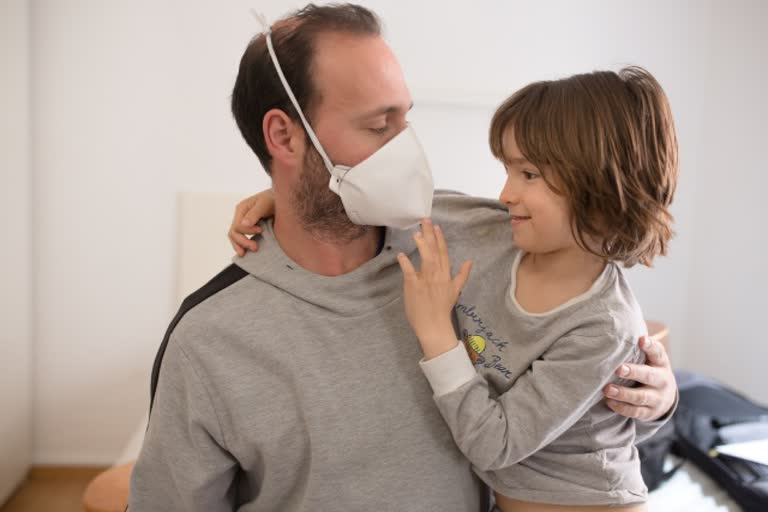COVID-19 pandemic and lockdown are affecting children with autism as fear of contracting the virus is making parents skip therapy. Experts say delaying therapy due to COVID fear and restrictions are adding to the problems of children.
Parents with autistic children are refusing the therapy because they are afraid their kids might get infected in every conceivable way if they take them down to the center.
According to Sreeja Reddy Saripalli, founder and chief strategist, Pinnacle Blooms Network, the problem is persisting since the first phase of COVID hit the country in March last year.
"Adults themselves have cut down on their interaction with the outside world over the past 14 months which means, even children, who are in desperate need of help, are held back from reaching out to social workers," she said.
Since much of the brain development happens when the baby is between 12 and 60 months, she said delaying therapy will add to the problems.
"Babies are born with 25 percent of their brain. As baby reaches their one year mark, it increases by 50 percent. By the time the child is 48 to 60 months, which is, four to five years old, the brain is fully developed. The development of the brain, which collects signals from the five senses and delivers them to the baby, must take place before the baby is 12 to 60 months old. Otherwise, the motor and executive functions that the child should be capable of doing on their own will most certainly be impaired," said Sreeja Reddy
She believes that missing crucial months (12 to 60 months) will render kid dependent and unable to navigate through life without parent's aid. It is of utmost importance that parents get them the therapy they require to build their motor and executive functions.
Also, Read Autism……...An unsolved mystery
She said since controlling COVID symptoms in the second phase has become much easier due to growing awareness about the virus and an array of instructions on how to avoid getting infected, parents must ensure that their child does not miss even a single day of therapy.
As with food, children with autism tend to be picky with their environment. Choosing to be in their room instead of socializing with others, they get little to no interaction. To compensate for that, parents usually bring their kids to the park so they can observe and have contact with the world outside on their terms so they're not totally cut off from it. This form of interaction too has been disrupted by COVID.
"It's a total myth that autistic kids of all kids are at high risk of catching the virus because of their immunity. Take them out, let them still meet people, make them wear masks, double it up if necessary, make them wear gloves, but bring them to the park and let them enjoy watching cats and people go by," she said.
According to Charan Teja Koganti, Consultant Neuropsychiatrist, KIMS Hospitals, Hyderabad, with the pandemic, there is an increase in the behavioral symptoms of autistic kids that include irritability, worry, tantrums, and fear.
"Attending speech therapy, occupational therapy, and child guidance clinics might be delayed due to disrupted medical services and lockdown which can interfere with the ongoing treatment for autism," said the doctor.
He also believes that the financial burden of parents can halt foregoing therapies entirely due to cost, which can lead to worse long-term behavioral outcomes.
There may be a failure to develop skills especially social and communication which they lack due to limited or no contact with other children with the suspension of in-person education, extracurriculars, and social activities. Picky eating and oral aversion can be a challenge due to the unavailability of their favorite food at a restaurant or in the grocery store, Charan Teja added.
(IANS)



